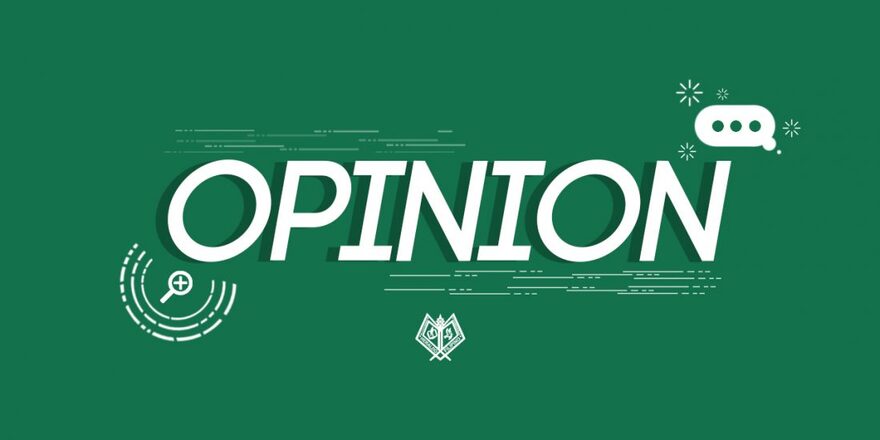Wise man
I remember entering the campus in my frosh year of college and appreciating the environment for its aesthetic. It was only much later that I saw the school’s environmental advocacy for what it was: a human responsibility. As we grow older, we learn to see the world through a wide lens that puts everything into perspective. And what I realized was this: for the most advanced species on earth, we are also the most foolish.
From the supposed problem solvers to the problem itself, it’s ironic to think that we are too small to fix the colossal climate crisis we created in the first place. This is nevertheless the mentality the population has adopted, refusing to make big sacrifices and content to think of earth’s crisis as something for scientists and lawmakers to miraculously fix.
I’ve seen it myself: whenever students are roped into discussing climate change, we take on a disassociated tone that styles these problems into abstract ideas too big and too far for us to solve. So, we simply go about our own business, consuming without care, unaware and unable to process how the plastic bag we just threw away will eventually suffocate a sea creature unlucky enough to swim into its path; how the batteries we just bought were probably made at a factory that leaked product residue into our rivers; or how every minor act we make will in turn create a major impact to the systematic devastation of our planet.
That’s where Giddens Paradox, a theory coined by sociologist Anthony Giddens, comes in. The paradox essentially explains that we won’t do much about climate change until it dramatically affects our daily lives, but by then, it will be too late. Imagine a fire happening in your neighborhood and your tunnel vision won’t notice the smoke until the flames lick at your doorstep—but it could have been avoided altogether if your neighbor hadn’t left the oven on or if the neighborhood doused the fire the moment it began. Unfortunately, \we have all the opportunities and resources at our disposal, but we’re so occupied with the comforts of capitalism that we’ll sit in this house fire until we burn along with it.
Here are the facts: this life-sustaining planet that we call earth is 4.5 billion years old. We, homo sapiens (which means “wise man”), are 140,000 years old. Our existence on this planet is but a microscopic fraction of the earth’s life, and yet the “wise men” have emitted layers upon layers of polluted gas in the air, formulated weapons of mass destruction, and left piles of our trash in the oceans, even in space. Because of unchecked human activity, the sea level has risen eight inches, the air contains 400 parts per million of carbon dioxide, the oceans acidity levels have increased by 30 percent, and the temperatures in the 21st century have broken historic records for being the hottest years ever.
Collectively-caused harm will require individual responsibility.
I don’t mean to get existential, but yes, it can seem like we are insignificant in the grand scheme of things. After all, earth has survived eons upon eons nourishing and extinguishing species greater than us. But that’s the same thinking that got us in this mess in the first place—too insignificant to think we could do damage, and yet still too insignificant to fix the damage we eventually made. The solution is not impossible nor is it beyond us—in the last century alone, humanity has made leaps in science and technology, and it can do so again, but this time, in the direction of cleaning rather than contaminating the planet.
That starts with enlightening lawmakers who are too busy squabbling with each other to fulfill an agreement to reduce the detrimental effects of climate change. Like most things in this world, even climate change has been politicized beyond belief, with nations debating over the forms of distributive and corrective climate justice to be exacted. In the game of international climate politics, it’s the least developed countries who will be the most vulnerable to climate change, yet it’s the most developed countries that have contributed more to global warming. Aside from settling the answer to climate change justice, we also have to establish a society where ecology and economy are not mutually exclusive—where we can have a green economy as well as a green democracy that moves towards the survival of the people rather than the interests of industries. But this all begins with realizing that collectively-caused harm will require individual responsibility.
Eventually, we have to stop unconsciously cupping our ears at the words “climate change” and to open our eyes to what science has been telling us for years—to start committing to solutions. It’s time we chart a new course in history, one steered to building the foundations for future generations. Because after all, what we fight for will mean nothing if we have no home to fight in. We must free ourselves from the chains of our own making, from the dependency on waste products and reliance on fossil fuels—we need to initiate action on the small-scale and large-scale, from our homes and communities to industries and the economy, from initiating waste-free lifestyles to lobbying for ecologically sustainable government action.
While I have faith we’ll get there in time, time is running out. So rather than remaining accomplices of our own destruction, it’s our human responsibility to be the problem solvers of the very problem we started in the first place. And here is the best place to start—the greenest university in the country.



